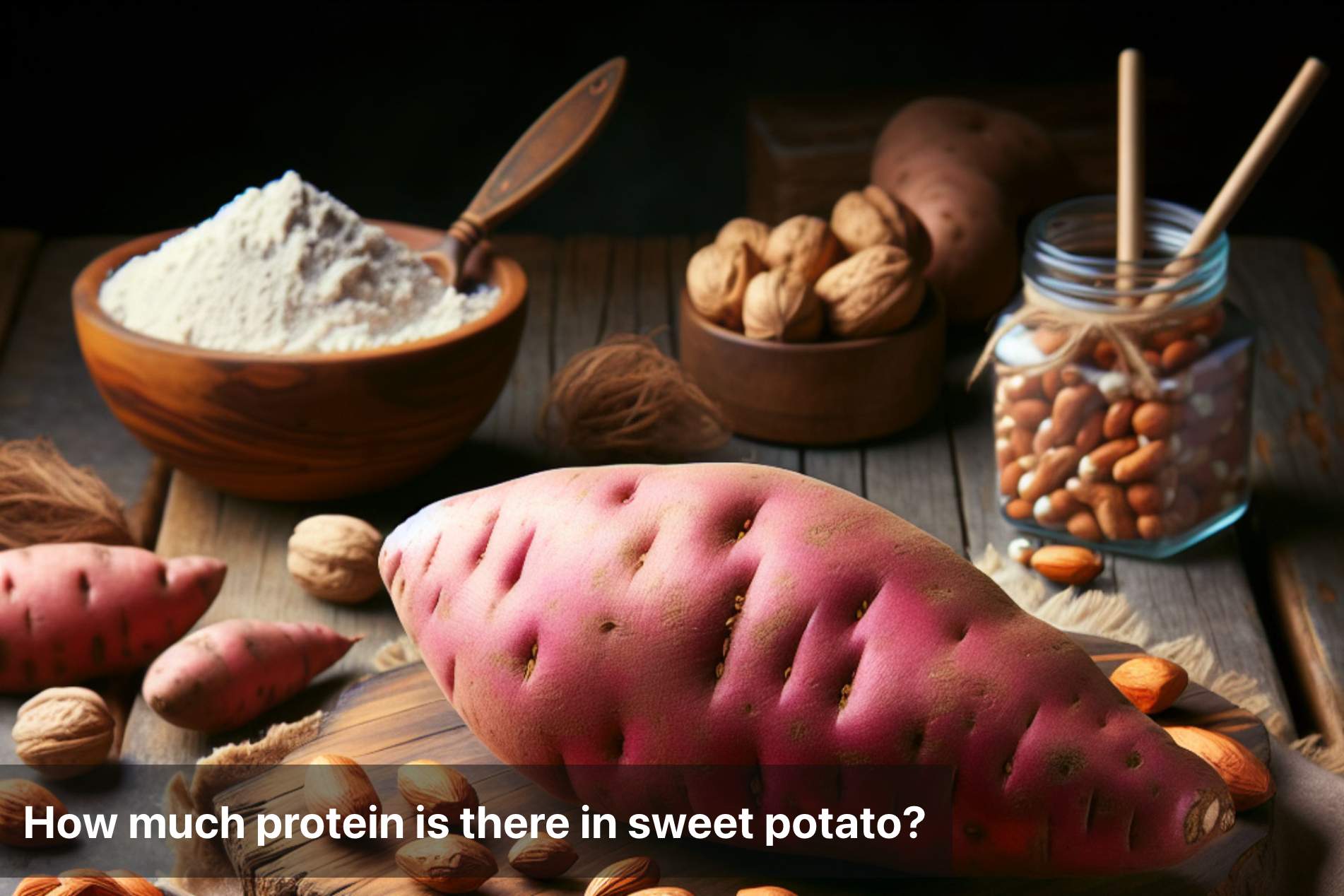
How much protein is there in sweet potato?
Sweet potatoes are a versatile and nutritious root vegetable that can bring both flavor and health benefits to your meals. They are rich in essential nutrients, making them a valuable addition to any diet. While sweet potatoes are often praised for their nutritional content, there is a common misconception surrounding their protein content.
Contrary to popular belief, sweet potatoes are not a significant source of protein. A medium-sized sweet potato contains only about 2 grams of protein. While this is lower compared to protein-rich foods like meat or legumes, sweet potatoes offer other essential nutrients that contribute to overall health, such as fiber, vitamins, and minerals.
Including a variety of protein sources in your diet is crucial for meeting your daily protein needs. While sweet potatoes can complement a high-protein diet, they should be paired with other protein-rich foods to ensure an adequate protein intake. Consider incorporating beans, nuts, seeds, lean meats, or dairy products alongside sweet potatoes to create balanced and nutritious meals.

Nutritional Profile of Sweet Potatoes
3.5 ounces (100 grams) of raw sweet potatoes contains:
Calories |
86 |
Water |
77% |
Protein |
1.6 grams |
Carbs |
20.1 grams |
Sugar |
4.2 grams |
Fiber |
3 grams |
Fat |
0.1 grams |
Ways to Incorporate Sweet Potatoes into a High-Protein Diet
Sweet potatoes are versatile, nutritious, and can be a delicious addition to a high-protein diet. Here are some tips and recipes to help you incorporate sweet potatoes into your meals in a way that boosts your protein intake:
Baked Sweet Potato with Chickpeas: One tasty way to enjoy sweet potatoes in a high-protein meal is by baking them and pairing them with seasoned chickpeas. The combination of flavors and textures can be truly satisfying and filling.
Sweet Potato and Black Bean Tacos: Create a protein-packed meal by making sweet potato and black bean tacos. Combine roasted sweet potatoes with seasoned black beans, avocado, salsa, and a sprinkle of cheese for a nutritious and delicious taco night.
Sweet Potato and Lentil Soup: Prepare a hearty sweet potato and lentil soup that is not only high in protein but also rich in fiber. This warm and comforting dish is perfect for chilly days and can be a complete meal in itself.
-
Grilled Sweet Potato Skewers: Grill sweet potato chunks on skewers along with marinated tofu or chicken for a delicious and protein-rich barbeque option.
By incorporating sweet potatoes into your meals creatively and pairing them with protein-rich foods like beans, chickpeas, tofu, or lean meat, you can enjoy a variety of flavorful dishes while meeting your protein requirements. Experiment with different recipes to find combinations that suit your taste preferences and dietary needs.

Sweet Potato Nutrition: Unveiling Its Protein Content
Sweet potatoes, despite not being high in protein, play a crucial role in a well-rounded diet. While they may not be a primary protein source, they offer numerous health benefits due to their rich nutrient profile.
Firstly, sweet potatoes are renowned for their versatility and delightful taste, making them a popular choice for many meals. Additionally, they are packed with fiber, vitamins, and minerals, contributing to overall health and well-being.
Although the protein content in sweet potatoes is relatively low compared to other sources, incorporating them into meals can still contribute to meeting daily protein needs. For individuals following a plant-based diet or seeking variety in protein sources, sweet potatoes can be a valuable addition.
While sweet potatoes may not be the go-to for protein, they are a valuable component of a balanced diet. When paired with other protein-rich foods, they can enhance the overall nutrient profile of meals. Remember, diversity in food choices is key to obtaining a wide range of nutrients for optimal health and wellness.
FAQs
-
How much protein is in a serving of sweet potato?
A medium-sized sweet potato typically contains around 2 grams of protein.
-
Is sweet potato a good source of protein?
While sweet potatoes are not a high-protein food, they do provide some protein as part of a well-rounded diet.
-
Can sweet potato help meet daily protein requirements?
Sweet potatoes can contribute to your overall protein intake, but you may need to include other protein sources to meet your daily requirements.
-
Are there better protein sources than sweet potato?
Yes, animal products like meat, fish, and dairy are higher in protein content than sweet potatoes.
-
How can I increase the protein content of a sweet potato dish?
You can add protein-rich toppings like beans, nuts, seeds, or a protein source of your choice to enhance the protein content of your sweet potato meal.
-
Are there different varieties of sweet potatoes with varying protein content?
While the protein content may vary slightly among different varieties of sweet potatoes, the difference is not significant.
-
Can I rely solely on sweet potatoes for my protein intake?
It is recommended to include a variety of protein sources in your diet to ensure you meet your daily protein requirements, rather than relying solely on sweet potatoes.
This Blog post is an initiative by Lo! Foods, to provide accurate and Nutritionist / Doctor approved information related to Health. Lo! Foods is India's leading brand for Everyday Functional Foods. Foods designed for specific Health conditions or Needs. Lo! Foods also runs India's largest range of Low Carb Healthy Cloud Kitchens, under the brand names of Lo!, ProteinChef, ATH (All Things Healthy) and DiabeSmart.











Leave a comment
Your email address will not be published.